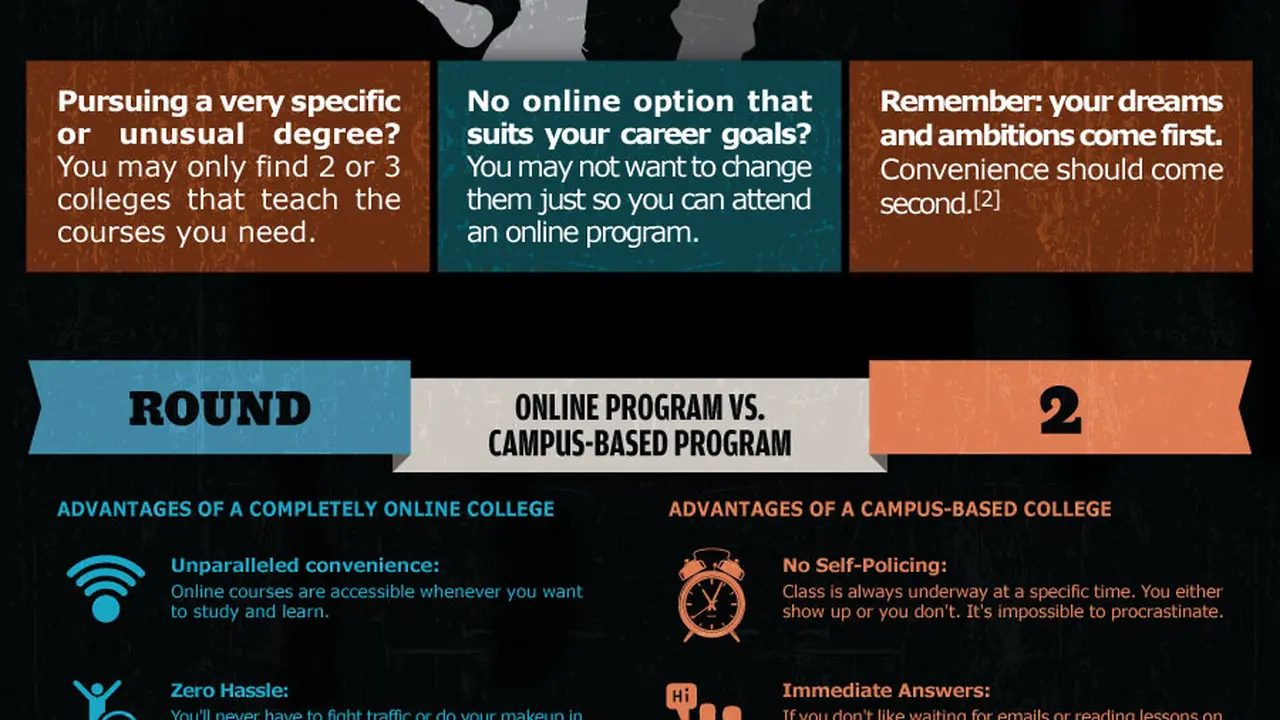Accreditation and Recognition of Online Degrees Worldwide
Understand the accreditation and recognition of online degrees worldwide. Ensure your qualifications are globally accepted.

Accreditation and Recognition of Online Degrees Worldwide
Hey there, future global learner! So, you're thinking about diving into the world of online education, maybe even snagging a degree from a university across the globe, all from the comfort of your couch. That's awesome! Online learning has truly opened up a universe of possibilities, especially for folks in the US and Southeast Asia looking to level up their skills without the hassle of relocating. But here's the thing: with so many options out there, how do you make sure that shiny new online degree or certificate you're eyeing is actually worth the paper (or digital file) it's printed on? That's where accreditation and recognition come into play, and trust me, it's a bigger deal than you might think.
We're going to break down everything you need to know about making sure your online qualifications are not just legitimate, but also respected and recognized, whether you're applying for a job in Silicon Valley or a new opportunity in Singapore. We'll talk about what accreditation actually means, why it's super important, how it differs across countries, and what you should look out for to avoid any nasty surprises. Plus, we'll even recommend some platforms and institutions that are known for their globally recognized credentials. Let's get started!
Understanding Online Degree Accreditation What It Means for Global Learners
First things first, let's demystify 'accreditation.' In simple terms, accreditation is like a stamp of approval. It's a process where an independent, authorized body evaluates an educational institution or program to ensure it meets certain quality standards. Think of it as a quality control check for schools. For online degrees, this is even more crucial because the physical presence of a campus isn't there to reassure you. An accredited online degree tells potential employers, other universities, and even government bodies that your education is legitimate, rigorous, and up to par with established academic benchmarks.
Without proper accreditation, your degree might be seen as worthless. It could mean you can't transfer credits to another university, you might not be eligible for certain professional licenses, and employers might not take your qualifications seriously. For international students, or anyone planning to work across borders, this is a make-or-break factor. Imagine spending years and thousands of dollars on a degree only to find out it's not recognized in the country where you want to work – nightmare scenario, right? That's why understanding accreditation is your first line of defense.
Regional vs National Accreditation Navigating the US Landscape
If you're looking at online degrees from the United States, you'll quickly encounter two main types of accreditation: regional and national. This can be a bit confusing, so let's clear it up.
- Regional Accreditation: This is generally considered the gold standard for academic institutions in the US. There are six regional accrediting bodies, each covering a specific geographical area (e.g., the Western Association of Schools and Colleges, the Southern Association of Colleges and Schools). These bodies accredit traditional, non-profit colleges and universities, and their standards are typically very high. If you're planning to transfer credits, pursue a graduate degree, or work in a field that requires specific licensure, a regionally accredited degree is almost always preferred, if not required. Most reputable online programs offered by traditional universities will hold regional accreditation.
- National Accreditation: National accreditors typically oversee vocational, technical, and for-profit institutions. While they do ensure a certain level of quality, their standards are often less rigorous than regional accreditors, and their degrees are generally less transferable to regionally accredited institutions. While a nationally accredited degree can be perfectly fine for specific career paths (like some trade professions), it's crucial to understand its limitations, especially if you have broader academic or career aspirations.
Key takeaway for US-based online degrees: Always aim for regional accreditation if possible. It offers the most flexibility and recognition.
Global Recognition of Online Degrees Understanding International Standards
Now, let's zoom out to the global stage. The concept of accreditation varies significantly from country to country. There isn't one single global accreditation body, which means what's recognized in the US might be viewed differently in, say, Singapore, the UK, or Australia. This is where it gets a bit tricky, but totally manageable with a bit of research.
Country-Specific Accreditation Bodies and Quality Assurance Agencies
Every country (or sometimes a group of countries, like the European Union) has its own system for quality assurance in education. Here are a few examples:
- United Kingdom: The Quality Assurance Agency for Higher Education (QAA) is the main body ensuring standards. Universities themselves are chartered institutions, and their degrees are generally recognized. When looking at UK online degrees, ensure the institution is recognized by the UK government and subject to QAA review.
- Australia: The Tertiary Education Quality and Standards Agency (TEQSA) is the national regulator for higher education. Any Australian online degree should come from a TEQSA-registered provider.
- European Union: While individual countries have their own agencies, the Bologna Process has harmonized higher education systems across much of Europe, making degrees more comparable and transferable. Look for institutions recognized by their national education ministries.
- Southeast Asia: This region is diverse. Countries like Singapore have their own robust quality assurance frameworks (e.g., the Committee for Private Education, CPE, for private institutions). Malaysia has the Malaysian Qualifications Agency (MQA). Thailand has the Office of the Higher Education Commission (OHEC). It's vital to check the specific country's regulatory body for higher education.
Pro Tip: When considering an online degree from a foreign institution, always check the relevant government's education ministry website or its designated quality assurance agency. They usually have lists of recognized institutions and programs.
The Role of International Recognition Bodies and Agreements
While there's no single global accreditor, some international agreements and organizations help facilitate recognition:
- UNESCO Conventions: UNESCO has several conventions on the recognition of qualifications concerning higher education. These are international treaties that encourage countries to recognize degrees obtained in other signatory states. While not a guarantee, a degree from a country that is a signatory to these conventions might have an easier path to recognition.
- Professional Bodies: For certain professions (e.g., engineering, accounting, medicine), specific international professional bodies might accredit programs or recognize qualifications. For example, an engineering degree accredited by ABET (Accreditation Board for Engineering and Technology) in the US might be recognized by engineering bodies in other countries through mutual recognition agreements.
Why is Global Recognition So Important for Your Online Degree?
Okay, so we've talked about what it is, but let's really hammer home why you absolutely cannot skip this step when choosing an online program, especially if you have global ambitions.
Career Mobility and Employment Opportunities
This is probably the biggest reason. If your online degree isn't recognized, it severely limits your job prospects. Employers, especially multinational corporations or those in regulated industries, will scrutinize your qualifications. A degree from an unaccredited or unrecognized institution might be dismissed outright, regardless of how much you learned. This is particularly true in competitive markets like the US and rapidly developing economies in Southeast Asia, where talent acquisition is fierce.
Further Education and Academic Progression
Planning to pursue a Master's or PhD after your Bachelor's? Or maybe transfer credits from an associate's degree to a bachelor's? If your initial online degree isn't recognized by other universities, you might find yourself unable to enroll in advanced programs. This can be a huge roadblock to your academic journey.
Professional Licensure and Certification
Many professions (e.g., nursing, teaching, law, engineering, psychology) require specific licenses or certifications to practice. These often mandate degrees from accredited institutions. An unrecognized online degree could prevent you from obtaining the necessary credentials to work in your chosen field, both domestically and internationally.
Immigration and Visa Purposes
If you're planning to work or immigrate to another country, your educational qualifications often play a significant role in visa applications and points-based immigration systems. Degrees from unrecognized institutions might not be given any weight, potentially jeopardizing your immigration plans.
How to Verify Accreditation and Recognition for Online Degrees
Alright, you're convinced. Now, how do you actually go about checking all this? Here's your step-by-step guide:
Step 1: Identify the Institution and Program
First, clearly identify the university or institution offering the online degree and the specific program you're interested in. Don't just look at the program name; get the full institutional name.
Step 2: Check the Institution's Website
Reputable institutions will proudly display their accreditation status on their website, usually in the 'About Us,' 'Accreditation,' or 'Admissions' sections. Look for specific names of accrediting bodies, not just vague statements like 'fully accredited.' If they don't clearly state it, that's a red flag.
Step 3: Verify with the Accrediting Body
Don't just take the institution's word for it. Go directly to the website of the stated accrediting body. They will have a searchable database of all institutions and programs they accredit. For US regional accreditation, check the Council for Higher Education Accreditation (CHEA) or the US Department of Education websites for lists of recognized accreditors. For international institutions, go to the relevant national quality assurance agency (e.g., QAA for UK, TEQSA for Australia, CPE for Singapore).
Step 4: Research Country-Specific Recognition
If you plan to use your degree in a country different from where the institution is based, research that country's specific requirements for recognizing foreign qualifications. Many countries have government agencies or credential evaluation services that can assess the equivalency of foreign degrees. For example, in the US, organizations like World Education Services (WES) or Educational Credential Evaluators (ECE) can provide evaluations.
Step 5: Consult Professional Bodies (If Applicable)
For professional degrees, check with the relevant professional licensing or certification body in the country where you intend to practice. They will have specific requirements for recognized qualifications.
Red Flags to Watch Out For When Choosing an Online Program
While many online programs are legitimate and high-quality, the digital landscape also has its share of 'degree mills' and unaccredited institutions. Here are some warning signs:
- No Clear Accreditation Information: If an institution is vague about its accreditation or doesn't list a recognized accrediting body, steer clear.
- Accreditation from Unrecognized Agencies: Some fake institutions create their own 'accrediting bodies' or use obscure ones that aren't recognized by national education authorities. Always cross-reference the accreditor with official government lists.
- Degrees for Life Experience Only: Legitimate degrees require coursework and academic rigor. If a program offers a degree based solely on 'life experience' or without any real academic engagement, it's likely a scam.
- Guaranteed Degrees or Rapid Completion: While some accelerated programs exist, be wary of institutions promising a degree in an impossibly short time frame or guaranteeing graduation without significant effort.
- High Pressure Sales Tactics: Legitimate educational institutions focus on academic fit, not high-pressure sales.
- Unrealistic Low Tuition or Fees: While online learning can be more affordable, extremely low tuition that seems too good to be true often is.
Recommended Platforms and Institutions with Globally Recognized Online Degrees
To help you get started, here are some platforms and institutions known for offering online degrees and courses that generally hold strong global recognition. Remember, always verify the specific program's accreditation!
Top Online Learning Platforms for Degree Programs
These platforms partner with established universities to offer online degrees and specializations. The accreditation comes from the partner university, not the platform itself.
Coursera
Overview: Coursera partners with over 200 leading universities and companies worldwide to offer a vast array of courses, specializations, professional certificates, and even full online degrees. Their degree programs are often identical to their on-campus counterparts in terms of curriculum and faculty, and thus carry the same accreditation from the partner university.
Key Features:
- University Partnerships: Collaborates with top-tier institutions like the University of Illinois, University of Michigan, Imperial College London, and HEC Paris.
- Diverse Degree Offerings: Offers Bachelor's and Master's degrees in fields like Computer Science, Data Science, Business Administration (MBAs), Public Health, and more.
- Flexible Learning: Self-paced learning with structured deadlines, allowing students to balance studies with work and life.
- Global Recognition: Degrees are accredited by the partner universities, ensuring global recognition.
Use Cases: Ideal for individuals seeking a full degree from a reputable university but needing the flexibility of online learning. Great for career changers or those looking to advance in their current field with a recognized credential.
Pricing: Degree program costs vary widely, typically ranging from $15,000 to $45,000+ USD for a full Master's degree, depending on the university and program. Individual courses and specializations are much cheaper, often subscription-based or a one-time fee.
Example Programs:
- Master of Computer Science (MCS) from University of Illinois Urbana-Champaign: A highly respected degree, regionally accredited in the US, recognized globally.
- Master of Business Administration (iMBA) from University of Illinois Urbana-Champaign: Another top-ranked, regionally accredited program.
- Master of Science in Data Science from University of Colorado Boulder: A strong program from a regionally accredited US institution.
edX
Overview: Founded by Harvard and MIT, edX is another powerhouse in online education, offering courses, professional certificates, and online degrees from many of the world's best universities. Similar to Coursera, the degrees offered through edX carry the accreditation of the issuing university.
Key Features:
- Prestigious Partners: Features programs from institutions like MIT, Harvard, UC Berkeley, Boston University, and The University of Queensland.
- MicroBachelors and MicroMasters Programs: Unique pathways that allow learners to earn university-backed credentials that can count towards a full degree.
- Focus on STEM and Business: Strong offerings in technology, engineering, data science, and business fields.
- Accreditation: Degrees are accredited by the partner universities, ensuring their validity and global recognition.
Use Cases: Excellent for learners who want to earn credentials from elite universities, potentially as a stepping stone to a full degree, or for those seeking specialized knowledge with strong academic backing.
Pricing: Degree costs are comparable to Coursera, ranging from $10,000 to $50,000+ USD for full degrees. MicroBachelors and MicroMasters programs are typically more affordable, often in the range of $500-$1,500 per program.
Example Programs:
- Master of Science in Analytics from Georgia Institute of Technology: A highly regarded program from a regionally accredited US university.
- Master of Science in Cybersecurity from Georgia Institute of Technology: Another strong offering from Georgia Tech.
- MicroMasters Program in Supply Chain Management from MIT: A valuable credential from a world-leading institution, recognized globally.
University of London Online
Overview: The University of London has been a pioneer in distance learning for over 160 years. They offer a wide range of online degrees (Bachelor's and Master's) that are fully accredited by the University of London itself, often with academic direction from one of its constituent colleges (e.g., LSE, Goldsmiths, King's College London).
Key Features:
- Direct University Accreditation: Degrees are awarded directly by the University of London, a globally recognized and respected institution.
- Academic Direction from Top Colleges: Many programs are developed and taught by faculty from world-renowned colleges within the University of London system.
- Global Reach: Students from over 180 countries study with the University of London online.
- Diverse Fields: Strong programs in Law, Business, Economics, Computer Science, and more.
Use Cases: Ideal for students worldwide seeking a prestigious UK degree with a long history of distance learning, particularly those in Commonwealth countries or those valuing UK academic standards.
Pricing: Degree costs vary but are generally competitive for a UK university, ranging from £10,000 to £25,000+ GBP for a full Master's degree.
Example Programs:
- BSc Business Administration (Academic direction by London School of Economics and Political Science): A highly respected undergraduate business degree.
- LLM (Master of Laws): A globally recognized law degree.
- MSc Data Science: A modern, in-demand degree with strong academic backing.
Credential Evaluation Services
If you already have a foreign online degree and need to prove its equivalency in another country, you'll likely need a credential evaluation service. These organizations assess your academic documents and provide a report that explains how your foreign degree compares to the educational system of the target country.
World Education Services (WES)
Overview: WES is one of the most widely recognized and trusted credential evaluation services, particularly for those looking to work or study in the US and Canada. They provide comprehensive evaluations that are often required by universities, employers, and licensing boards.
Key Features:
- Comprehensive Reports: Offers various types of evaluations, including Document-by-Document and Course-by-Course, detailing US equivalency.
- Widely Accepted: Reports are accepted by thousands of academic institutions, licensing bodies, and employers across North America.
- Online Application: Streamlined online process for submitting documents.
Use Cases: Essential for international students applying to US/Canadian universities, immigrants seeking to have their foreign degrees recognized for employment, or professionals needing licensure.
Pricing: Evaluation fees typically range from $100 to $250 USD, depending on the type of evaluation and additional services. There might be extra costs for sending reports to multiple recipients.
Educational Credential Evaluators (ECE)
Overview: ECE is another highly respected non-profit organization providing credential evaluations for individuals educated outside the US. They are also widely accepted by academic institutions and employers.
Key Features:
- Focus on Academic Equivalency: Specializes in evaluating academic credentials for educational and professional purposes.
- Different Report Types: Offers General and Course-by-Course evaluations.
- Member of NACES: ECE is a member of the National Association of Credential Evaluation Services (NACES), a recognized association of credential evaluation services in the US.
Use Cases: Similar to WES, ECE is crucial for individuals needing to demonstrate the US equivalency of their foreign online degrees for academic or professional pursuits.
Pricing: Evaluation fees are comparable to WES, generally ranging from $100 to $200+ USD.
Final Thoughts on Your Online Learning Journey
Choosing an online degree is a fantastic step towards personal and professional growth, especially with the flexibility it offers to learners in the US, Southeast Asia, and beyond. But remember, the value of that degree hinges significantly on its accreditation and global recognition. Do your homework, ask the right questions, and verify everything. By being diligent, you can ensure that your investment in online education pays off with a credential that opens doors, not closes them, wherever your career takes you.
Happy learning, and here's to a future where your online achievements are recognized and celebrated worldwide!
:max_bytes(150000):strip_icc()/277019-baked-pork-chops-with-cream-of-mushroom-soup-DDMFS-beauty-4x3-BG-7505-5762b731cf30447d9cbbbbbf387beafa.jpg)






